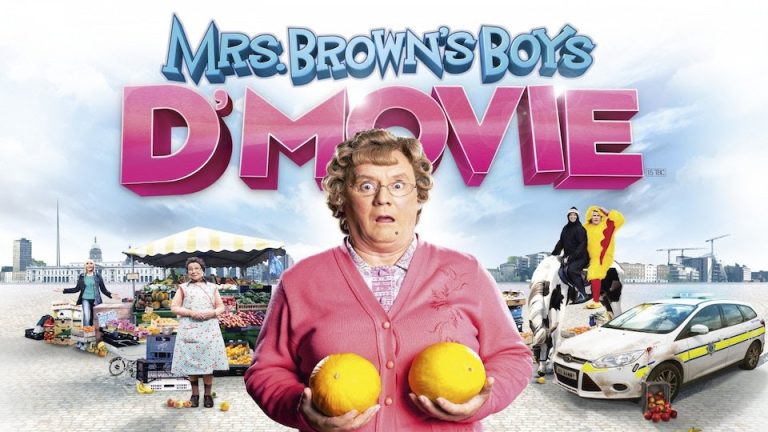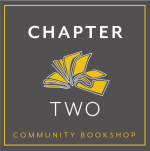We’re off to Ireland. (But don’t shout about it!)
‘It turned colder, that’s where it ends’, so lamented the much missed Olivia Newton-John, of her Summer Nights in the movie Grease (1978). If, like Sandy Olsson (or Dumbrowski for purists) in the musical, you too only have your holiday memories to entertain you as the nights draw in, relief is at hand with the start of the new season of The Chiltern Film Society!
The 54th programme opened at The Elgiva on Wednesday 7th September. As patrons of The Elgiva will have come to delight in expecting, this season’s selection is a range of eclectic and enthralling international titles, which kicked off with The Quiet Girl (or An Cailín Ciúin) (2022), a film mostly spoken in Irish Gaelic.
Set in County Waterford in the early 1980s, The Quiet Girl tells the story of nine-year-old Cáit (Catherine Clinch), a withdrawn and mostly silent child from a neglected background. Cáit is sent off for a summer to live with distant relatives at the request of her heavily pregnant mother and abusive father, while they tend to their many other offspring. As the weeks unfold, Cáit experiences love and affection from her childless foster carers, while at the same time discovering a secret that was best kept hidden.

Helmed by Colm Bairéad, in his directorial feature debut, and based on the novella Foster by Claire Keegan, The Quiet Girl has been described by The Guardian’s Peter Bradshaw as a jewel of a film, and has won many awards and accolades, including prizes at the Berlin and Dublin International Film Festivals.
Variety magazine cited that ‘Ireland has become the capital of filmmaking’, owing to the attractive mix of production talent, beautiful and rugged locations and substantial tax incentives which are currently on offer.
Screen Ireland, founded in 1993, and the Irish Film Board before it (1980 – 1987), is the Republic’s development agency for film, television and animation, and has been responsible for helping to fund and produce many of the country’s recent celluloid exports, including The Magdalene Sisters (2003), The Guard (2011) and Room (2015).

Ardmore Studios, based in Bray, County Wicklow, is Ireland’s only major production venue, which first opened in 1958. The state-of-the-art studio, now home to five sound stages and a water tank facility, has helped to create many classics, including The Spy Who Came in From the Cold (1965), The Lion In Winter (1968), My Left Foot (1989), Braveheart (1995) and The Green Knight (2020), as well being the current home to the Irish version of Dancing with the Stars.
Cartoon Saloon is a Kilkenny based animation studio, which has produced a number of widely acclaimed series and Oscar nominated features, including the Irish Folklore trilogy: The Secret of Kells (2009), Song of the Sea (2014) and Wolfwalkers (2020). Cartoon Saloon’s signature blend of bold lines, vibrant colours and geometric design has charmed audiences and critics alike. In fact, a recent season of the CFS featured the studio’s Afghanistan based drama The Breadwinner (2017), in which a young girl disguises herself as a boy in order to buy food for her family under the Taliban’s regime. Proof once again that CFS members (and committee? Trying to remain impartial…) have discerning taste as the animation was rated one of the highest scores in that year’s programme.
Political events from an often turbulent history have been portrayed in films such as Neil Jordan’s Michael Collins (1996), starring Liam Neeson as the leader striving for Irish independence, Ken Loach’s The Wind that Shakes the Barley (2006), which examines similar themes, and Jim Sheridan’s In the Name of the Father (1993), based on the story of the Guildford Four, which was nominated for seven Academy Awards, including Best Actor for Daniel Day-Lewis.

Earlier this year, Kenneth Branagh’s Belfast (2021) (set in Northern Ireland), told a semi-autobiographical account of living through the troubles from an alternative perspective and won an Oscar for Best Screenplay. To avoid ambiguity, the main swathe of this article will focus on works set in and around The Republic of Ireland, and its wealth of talent and stories.
Those searching for the romance and nostalgia often associated with the Emerald Isle would be advised to seek out the 1950s coming-of-age dramas Circle of Friends (1995), which saw Minnie Driver shoot to fame, and Brooklyn (2015), where Saoirse Ronan must choose between the familiarity and traditions of small-town life in Ireland and forging her own path in New York.
More contemporary, and debatably more mawkish, romances, complete with lush green fields, wistful glances between the leads, ‘hilarious’ misunderstanding, and twiddly-diddly soundtracks can be found in Leap Year (2010), Wild Mountain Thyme (2020) and PS: I Love You (2007). The latter containing what Simon Mayo and Mark Kermode deem as the ultimate lazy shorthand for Ireland, when Hilary Swank walks into a bar (there’s a joke here somewhere), and the whole establishment breaks out into a raucous ditty (the song being Galway Girl by Steve Earle – Ed Sheeran need not apply). No amount of tin whistles can save an audience from this trope, it would seem.

Drinking revelry, often being synonymous with Irish culture and good times, brings me to a family anecdote of my own (don’t worry, it’s relevant). My parents and my paternal grandparents were on holiday in Dingle Bay one summer. Having stopped off for supplies at a local supermarket, they bumped into Sir John Mills who was also wandering the aisles, taking a break from filming Ryan’s Daughter (1970) on a nearby set, under the direction of David Lean. My grandma clocked the fruit based contents of Sir John’s shopping basket and a happy chat ensued, regarding which quantities of lemon and tonic worked best with gin (it gets hazy at this point on the exact measurements). John Mills subsequently won an Oscar for his supporting role of Michael in the film, my relatives continued to enjoy their holiday, and Gordon’s and citrus fruit found a new home with us at family gatherings.
If pub singing isn’t your thing, three uplifting musical films (all based in Dublin), that might stir your soul (pun intended) are Alan Parker’s The Commitments (1991), (look hard enough and you’ll spot all four members of The beautiful Corrs), Once (2007) where a busker and a flower selling do indeed make beautiful music together, and the 80s teen nostalgia treat Sing Street (2016), which was previously shown at the CFS (oh yes, they’re good!).
In recent times, Irish horror films have experienced a renaissance, with titles such as The Devil’s Doorway (2018), The Hole in The Ground (2019) and You are not my Mother (2021), delighting fans of the genre (I couldn’t even get through the trailers…). Despite the title, The Boys from County Hell (2020) provides a welcome comic spin on the vampire genre and that could prove to be a good double bill with Shaun of the Dead (2004). Alternatively, you could stream one of the titles in the Leprechaun (2003 – 2018) slasher franchise. (I have begged the CFS committee, but, sadly, none of the eight movies has ever even made it to the long list for consideration for the next CFS season). Or even more scarily, in a genre all of its own, Mrs Brown’s Boys D’Movie (2014) (the antithesis of The Quiet Girl in every way).

We hope you enjoyed watching The Quiet Girl and look forward to welcoming you at the rest of CFS’s new season.
Just remember, don’t bring any snacks that make a noise!




















